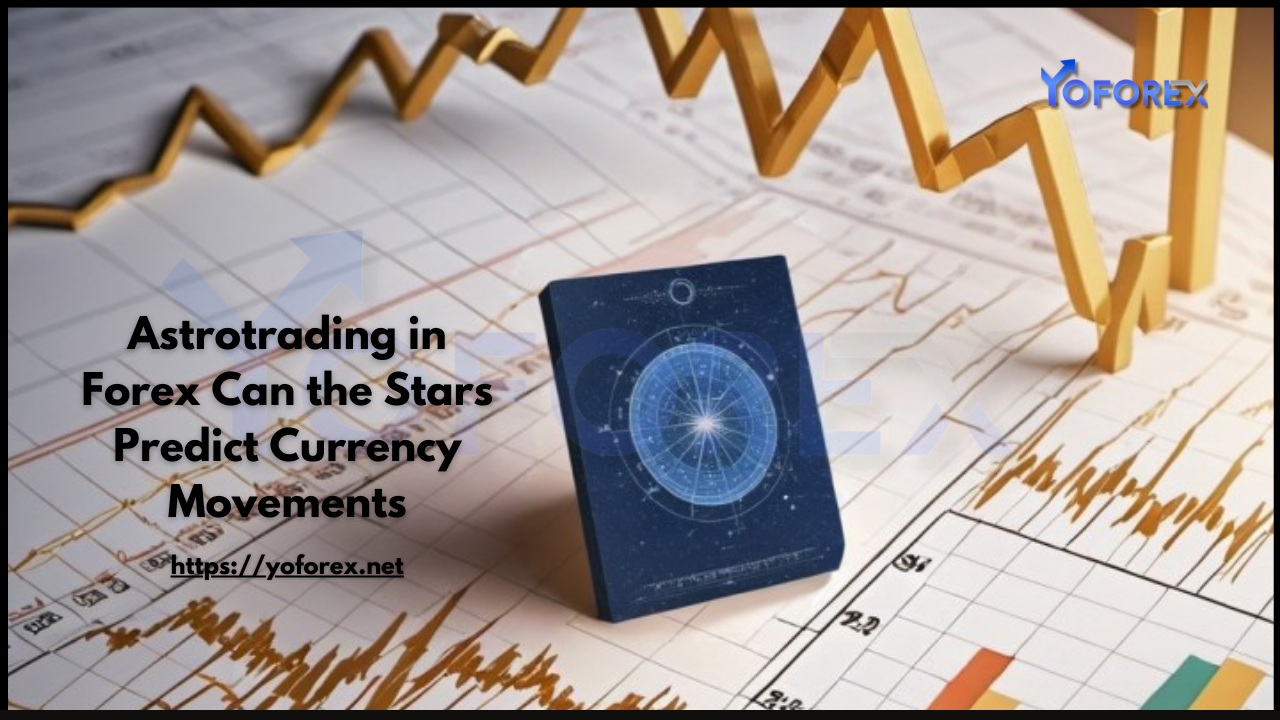The foreign exchange (forex) market is a dynamic and complex arena where traders rely on a variety of tools and strategies to predict currency movements. Among the more unconventional approaches is Astro trading, also known as financial astrology, which uses celestial events and planetary movements to inform trading decisions. While some dismiss it as pseudoscience, others swear by its ability to provide unique insights into market sentiment and trends. This blog post explores the principles of Astro trading, its historical roots, and its potential role in forex trading while addressing its limitations and controversies.
What is Astrotrading?
Astrotrading is the practice of applying astrological principles to financial markets, including forex. It is based on the belief that celestial bodies, such as planets and stars, influence human behavior and, by extension, market dynamics. Financial astrologers analyze planetary cycles, retrogrades, eclipses, and other astronomical events to identify patterns that may correlate with market trends.
For example, the Moon is often associated with emotions and instincts, which can impact investor sentiment. Similarly, Mercury retrograde is linked to communication breakdowns and market volatility, while eclipses are seen as catalysts for significant shifts in market energy.
Historical Roots of Financial Astrology
The use of astrology in financial decision-making dates back centuries. Ancient civilizations, including the Greeks, Egyptians, and Chinese, used astrology to predict agricultural yields, weather patterns, and political events. In the 17th century, English astrologer William Lilly applied astrological principles to predict commodity prices, while in the 20th century, trader W.D. Gann combined astrology, numerology, and geometry to forecast stock market movements.
Today, financial astrology has gained traction among some traders, who use it as a complementary tool alongside traditional analysis methods. However, it remains a controversial practice, with critics arguing that it lacks scientific validation.

Key Principles of Astrotrading in Forex
Astrotrading in forex revolves around several key principles:
- Planetary Cycles and Market Sentiment
Financial astrologers believe that planetary cycles, such as the Jupiter-Saturn conjunction or the lunar cycle, influence market sentiment. For instance, the waxing phase of the Moon is associated with increasing optimism, while the waning phase may signal caution or pessimism. - Eclipses and Retrogrades
Eclipses are considered powerful events that can trigger market volatility, while retrogrades (e.g., Mercury retrograde) are linked to periods of introspection and potential market indecision. - Planetary Alignments
Conjunctions and oppositions between planets are believed to represent shifts in market energy. For example, a conjunction of Jupiter and Saturn may signal a new economic cycle, while an opposition could indicate tension or a turning point. - Emotional Awareness
Astrotrading emphasizes the role of emotions in trading. By understanding how celestial events influence market sentiment, traders can better manage their feelings and avoid impulsive decisions.
Astrotrading in Practice: Examples and Strategies
Astrotrading strategies often involve combining astrological insights with traditional technical and fundamental analysis. Here are a few examples:
- Trading During Eclipses
Eclipses are seen as periods of uncertainty and transformation. Traders may limit their exposure during these times, as markets can become highly volatile. - Lunar Cycle and Short-Term Trading
The lunar cycle is often used to gauge short-term market sentiment. For example, traders might initiate trades during the waxing Moon phase, when sentiment is believed to be more positive and exercise caution during the waning phase. - Monitoring Planetary Retrogrades
During Mercury retrograde, traders may avoid making impulsive decisions and focus on reviewing their positions, as this period is associated with communication breakdowns and technical glitches.
Benefits and Limitations of Astrotrading
Benefits
- Broader Perspective: Astrotrading offers a unique lens through which to view market movements, complementing traditional analysis methods.
- Emotional Awareness: By understanding the influence of celestial cycles on market sentiment, traders can better manage their emotions and avoid impulsive decisions.
- Cyclical Understanding: Astrotrading emphasizes the cyclical nature of markets, helping traders identify potential turning points.
Limitations
- Lack of Scientific Validation: Astrotrading is not based on empirical evidence, and its predictions are inherently uncertain.
- Complexity: Interpreting astrological data requires expertise and experience, and misinterpretations can lead to incorrect trading decisions.
- Emotional Bias: Over-reliance on astrology can lead to emotional bias, undermining objective decision-making.
Integrating Astrotrading with Traditional Analysis
To maximize the potential of Astro trading, it should be used in conjunction with traditional analysis methods, such as technical and fundamental analysis. For example, a trader might use astrological insights to identify potential periods of market volatility and then apply technical indicators, such as moving averages or support and resistance levels, to refine their entry and exit points.
Conclusion: A Tool for Insight, Not Prediction
Astrotrading offers a fascinating way to understand forex markets through the lens of celestial movements. While it is not a predictive tool, it can provide valuable insights into market sentiment and potential turning points. By combining astrological principles with traditional analysis methods, traders can develop a more holistic approach to navigating the forex market.
However, it is essential to approach astrotrading with caution. Like any trading strategy, it comes with risks, and its effectiveness depends on the trader’s ability to interpret astrological data accurately. Ultimately, Astro trading should be viewed as a complementary tool rather than a standalone strategy, helping traders better understand the forces that drive financial markets.
Final Thoughts
Whether you’re a skeptic or a believer, astrotrading is undeniably an intriguing approach to forex trading. By exploring its principles and integrating them with traditional methods, traders can unlock new perspectives and potentially enhance their decision-making process. As with any strategy, the key lies in balance, discipline, and a willingness to adapt to the ever-changing dynamics of the forex market.

